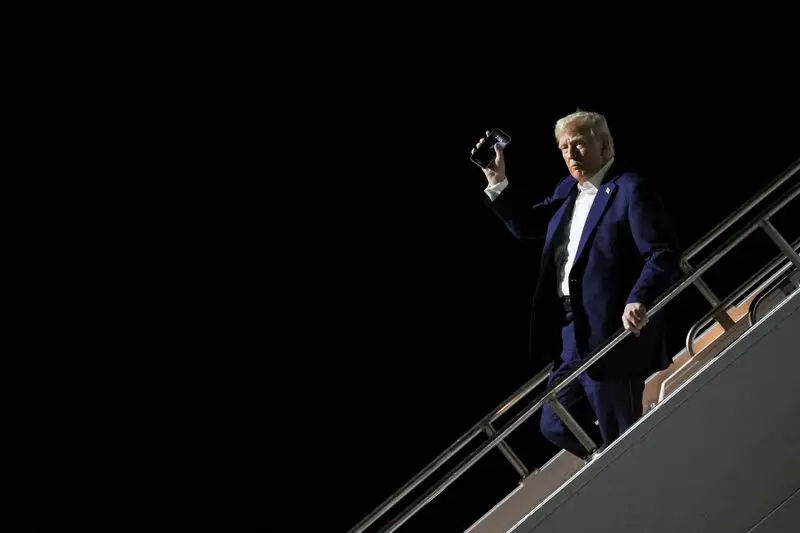Upon resuming office, President Trump enters the political arena with a bold agenda aimed at reshaping the American economy. As he heads to Las Vegas, a city known for its vibrant hospitality sector, Trump is keen to rally support around his promise to eliminate taxes on tips and implement far-reaching tax cuts. This crusade reflects not only his personal ambitions for the 2024 election but also the capitalism-centric ideology that underscores his administration’s economic strategies. However, the foundations and implications of such proposals warrant a critical examination, particularly considering the challenges they may pose to the nation’s fiscal stability.
One of Trump’s key proposals focuses specifically on the hospitality industry’s taxation framework, which is immensely significant given that this sector employs a considerable portion of Nevada’s workforce. By aiming to eradicate taxes on tips and overtime, Trump positions himself as a champion of lower-income service workers who are grappling with inflation and rising living costs. Republican leaders like Michael McDonald have expressed optimism in this proposal, postulating that it may relieve economic burdens for workers facing financial hardships.
However, while the motivations behind this policy are commendable, it is crucial to interrogate the broader ramifications. Lowering taxes in this way might provide temporary relief to workers, but could also lead to a reduction in essential public services funded by tax revenues, thus affecting the very constituents Trump aims to help. The risk of creating a dependency on fluctuating revenues from an unstable hospitality sector further complicates this strategy.
Trump’s agenda of tax cuts is underpinned by promises that might result in significant economic shifts. Whether extending the 2017 tax cuts or abolishing taxation on essential social security benefits, the economic analysis presented by organizations such as the Committee for a Responsible Federal Budget raises alarms about the long-term feasibility of his propositions. An acceleration of national debt, projected to hit $7.5 trillion over the next decade, poses real concerns for fiscal responsibility.
What is particularly unsettling is Trump’s notion of balancing these cuts through increased tariffs on imports. While this approach appears promising on the surface, it is essential to recognize the potential volatility of tariff revenues. Tariffs can fluctuate based on international trade dynamics, and the dependencies they create could undermine the stability of funding for public services essential to workers nationwide.
Adding to the complexity, Trump’s aggressive tax-cut ambitions come at a time of skepticism among even his own Republican allies. At a recent closed-door summit, House Republicans voiced unease regarding the growing national debt, which poses substantial risks to the government’s capacity to service its obligations. The juxtaposition between economic growth through tax cuts and the potential for a debt crisis raises critical questions about the sustainability of such policies.
The challenge for Trump and his supporters will be in balancing the appeal of tax cuts to the public with the need to maintain healthy fiscal governance. The likelihood of internal divisions within the party on how to approach fiscal responsibility could impede the realization of Trump’s ambitious economic agenda.
As President Trump embarks on his renewed campaign for economic reform, his proposals to eliminate taxes on tips and implement broader tax cuts have elicited considerable attention. While aiming to alleviate the economic burdens on service industry workers, Trump must navigate numerous hurdles related to fiscal sustainability and political feasibility. Ultimately, the efficacy of his policies will depend not just on their immediate popularity but also on their long-term effects on the nation’s economic landscape. As the dialogue unfolds, it will be imperative for both Trump and his challengers to engage rigorously and ethically with the complexities that define America’s fiscal future.

